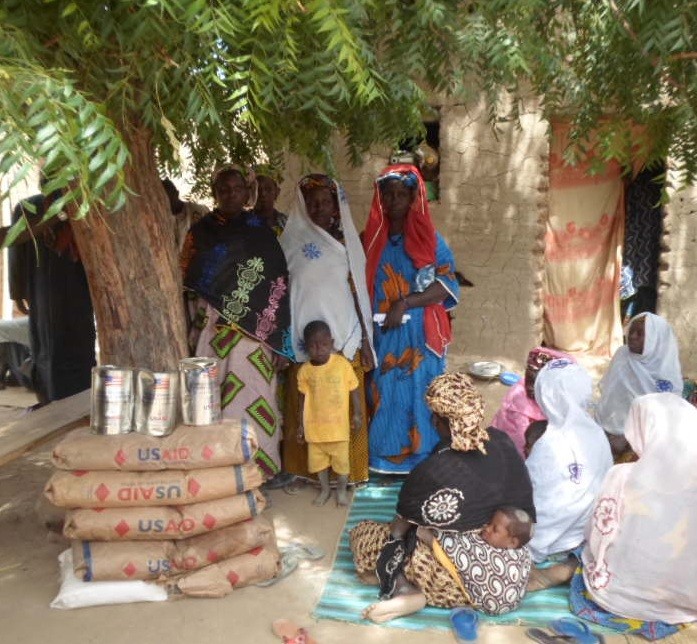
June 2015—After losing her husband two years ago, Mohamed Agaïcha, a mother living in rural Timbuktu, lacked an adequate source of income and found herself unable to provide enough food for her five children. Agaïcha’s family is one of the hundreds of thousands of families affected by the ongoing conflict and violence in northern Mali.
“I am a mother of three little girls and two little handsome boys. I had trouble to provide food for them and meet their needs every day,” she said.
Timbuktu, located at the southern edge of the Sahara desert, was once a center of trade, culture and tourism. Over the past three years, however, internal conflict led to widespread displacement, decimating tourism in Timbuktu. This caused many families, including Agaïcha’s, to lose their only source of income. Disruptions to the economy reduced access to basic food, leading to higher levels of malnutrition and food insecurity, and further weakening the resilience of these vulnerable populations.
“At the beginning of the crisis, I found myself without a source of income since I was not working and my eldest child, my 18-year-old daughter, was also unable to work. I grew vegetables and sold them, but it was not enough for us to live on,” said Agaïcha.
In response to the food security crisis, starting in 2012, USAID’s Office of Food for Peace supported the U.N. World Food Program (WFP) to deliver lifesaving emergency food assistance to help families meet their food and nutrition needs. WFP distributed commodities including cereal, beans, vegetable oil and salt to families like Agaïcha’s, which helped ease the burden on communities seriously affected by the conflict.
With the assistance, Agaïcha was able to provide her family with enough food and send her children to school. “I can use the money I earn from selling vegetables to pay for my children’s school, and for other things that we need,” she said.
In addition to the political coup and resulting violence in March 2012, that same year Mali experienced the Sahel food and nutrition crisis and, in 2011, a regional drought. These events all had a devastating effect on rural communities and led to a serious deterioration in the food and nutrition status of already fragile populations. USAID provided much-needed support for those affected by the debilitating shocks who lost significant aspects of their livelihoods.
As the situation improves, USAID and partner WFP are continuing to assist both returnees and once-displaced families to help rebuild their lives at home.
In fiscal year 2014, USAID provided over $20 million to assist conflict-affected persons in Mali and helped WFP reach over 600,000 beneficiaries with food and nutritional support.
LINKS
Follow @USAIDMali, @USAIDFFP, on Facebook







Comment
Make a general inquiry or suggest an improvement.